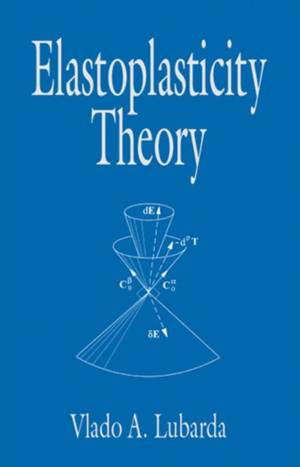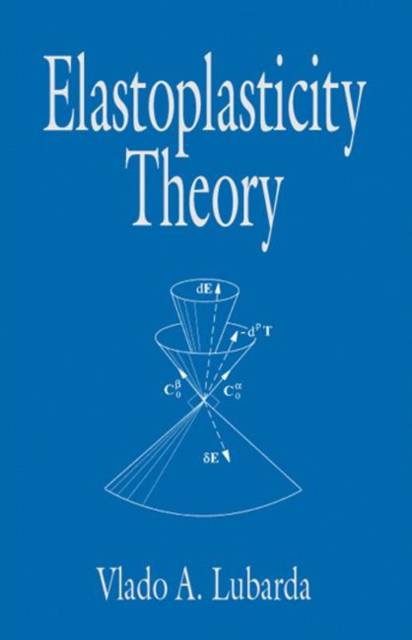
- Afhalen na 1 uur in een winkel met voorraad
- Gratis thuislevering in België vanaf € 30
- Ruim aanbod met 7 miljoen producten
- Afhalen na 1 uur in een winkel met voorraad
- Gratis thuislevering in België vanaf € 30
- Ruim aanbod met 7 miljoen producten
Zoeken
€ 496,45
+ 992 punten
Uitvoering
Omschrijving
Understanding the elastoplastic deformation of metals and geomaterials, including the constitutive description of the materials and analysis of structure undergoing plastic deformation, is an essential part of the background required by mechanical, civil, and geotechnical engineers as well as materials scientists. However, most books address the subject at a introductory level and within the infinitesimal strain context. Elastoplasticity Theory takes a different approach in an advanced treatment presented entirely within the framework of finite deformation. This comprehensive, self-contained text includes an introduction to nonlinear continuum mechanics and nonlinear elasticity. In addition to in-depth analysis of the mathematical and physical theories of plasticity, it furnishes an up-to-date look at contemporary topics, such as plastic stability and localization, monocrystalline plasticity, micro-to-macro transition, and polycrysalline plasticity models. Elastoplasticity Theory reflects recent trends and advances made in the theory of plasticity over the last four decades. It will not only help stimulate further research in the field, but will enable its readers to confidently select the appropriate constitutive models for the materials or structural members relevant to their own applications.
Specificaties
Betrokkenen
- Auteur(s):
- Uitgeverij:
Inhoud
- Aantal bladzijden:
- 664
- Taal:
- Engels
- Reeks:
Eigenschappen
- Productcode (EAN):
- 9780849311383
- Verschijningsdatum:
- 16/07/2001
- Uitvoering:
- Hardcover
- Formaat:
- Genaaid
- Afmetingen:
- 167 mm x 240 mm
- Gewicht:
- 1093 g

Alleen bij Standaard Boekhandel
+ 992 punten op je klantenkaart van Standaard Boekhandel
Beoordelingen
We publiceren alleen reviews die voldoen aan de voorwaarden voor reviews. Bekijk onze voorwaarden voor reviews.











